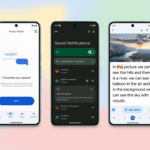YouTube’s comments section has had a negative reputation, prompting the platform to introduce a “read-only” comments option for children in supervised experiences. This change aims to protect kids from inappropriate content.
The feature will be gradually implemented in the upcoming weeks as announced by YouTube.

Image Credits: YouTube
This modification marks one of the significant enhancements to YouTube’s parental control features since 2021 when additional safeguards were introduced for minors under legislative pressure.
Earlier, comments were entirely disabled for children, encompassing both viewing and writing capabilities. However, YouTube expressed its intention to collaborate with parents and experts to introduce an age-appropriate commenting feature for older kids in the future.
This new feature applies to two out of three content settings available to parents seeking a child-friendly YouTube environment: “Explore More” and “Most of YouTube.”
“Explore More” permits children to browse videos with content suitable for viewers aged 13 and above, while “Most of YouTube” grants older kids access to most content excluding videos strictly restricted for adult audiences.
By default, children can only read comments under these content settings, with writing comments and live chat disabled.
Parents interested in completely disabling comments can switch their child to the “Explore” setting tailored for viewers aged 9 and above. This setting typically serves as a stepping stone into the primary YouTube experience following the use of the dedicated YouTube Kids app in earlier years.
Parents can adjust their child’s settings through YouTube’s parent settings or Google’s Family Link parental controls app. They can also monitor their child’s activity on the child’s device using the My Activity feature.
Notably, the selected YouTube settings for a child do not apply when the child accesses YouTube content embedded on third-party websites.
Congress has long been advocating for tech companies to enhance child protection mechanisms, and recent initiatives like the Kids Online Safety Act and COPPA 2.0 emphasize the importance of robust parental controls. YouTube is preemptively incorporating these protections into its platform.
Following the introduction of parental controls in 2021, YouTube implemented several updates in November 2023 to enhance safety for teenagers, including restrictions on repeated viewing of certain topics and reminders for breaks and bedtime.
Although the email informing parents about the changes has been circulated, YouTube has yet to make a public announcement on its blog regarding the read-only comments adjustment. Requests for comments from YouTube remain unanswered.









